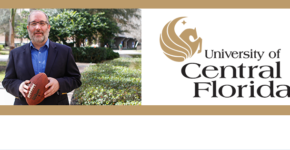Category: Business
-

Robert Edgell, SUNY Polytechnic Institute – Seeing 3D
Go with the flow. Robert Edgell, professor of technology management at SUNY Polytechnic Institute, explains that getting users in a flow-state may be the best way to get them to hand over their dollars for a wearable 3D gaming device. Dr. Robert Edgell is an Assistant Professor of Technology Management at SUNY Polytechnic Institute and…
-

Andrew Ching, University of Toronto – Publicity and Paid Advertisements
Does publicity add to or subtract from paid promotional materials? Andrew Ching, associate professor of marketing at the University of Toronto’s Rotman School of Management, examines whether something needs to be said twice if someone else has already said it for you. Andrew Ching is Associate Professor of Marketing at Rotman. He is a winner…
-

Jonathan Wynn, University of Massachusetts Amherst – Festivals
Bringing people together for a weekend can be better for a city than building a museum. Jonathan Wynn, assistant professor of sociology at the University of Massachusetts Amherst, discusses how more performances and less concrete can lead to fewer problems for cities. Jonathan Wynn works at the intersection of urban and cultural sociology. His two…
-

Martin Krieger, University of Southern California – Sounds of the City
The sounds of a city can be just as distinct as its skyline. Martin Krieger, professor of planning at the University of Southern California, explores the noises that permeate the neighborhoods of Los Angeles. Martin H. Krieger is professor of planning at the Sol Price School of Public Policy at the University of Southern California.…
-

Steven Whiting, University of Central Florida – Teamwork
It pays to be a team player. Steven Whiting, assistant professor of management at the University of Central Florida, examines how being part of the team can lead to a bigger payday from your employer. Steven Whiting is an Assistant Professor of Management in the College of Business Administration at the University of Central Florida…
-

Hemant Sashittal, St. John Fisher College – Reaching College Students Through Snapchat
Knowing how to use the latest social media platform can be a boon for your brand. Hemant Sashittal, professor of marketing at St. John Fisher College, details how certain brands are using Snapchat to get in touch with a younger audience. Hemant Sashittal currently serves as professor of marketing at the School of Business at…
-

Dylan Minor, Harvard Business School – Toxic Workers
Having a toxic worker on your staff can cause big problems. Dylan Minor, Visiting Assistant Professor of Business Administration at the Harvard Business School, explores the cost of having even one person bringing down the office. Dylan Minor is a visiting Assistant Professor of Business Administration at Harvard Business School, where he teaches a first…
-

Garth Heutel, Georgia State University – Solar Geoengineering
How does an economist look at climate change? Garth Heutel, assistant professor of economics at Georgia State University, explains his research into the benefits and risks of solar geoengineering. Garth Heutel is an Assistant Professor of Economics in the Andrew Young School of Policy Studies at Georgia State University and a Faculty Research Fellow at…
-

Pierre McDonagh, University of Bath – Electric Cars
The electric car has yet to hit the mainstream. Pierre McDonagh, professor of marketing at the University of Bath, delves into the steps to get electric vehicles in more driveways. Pierre’s research primarily focuses on the (im)possibility of sustainability within the prevailing order and oppositional counter culture. He has published widely on the interactions among…

